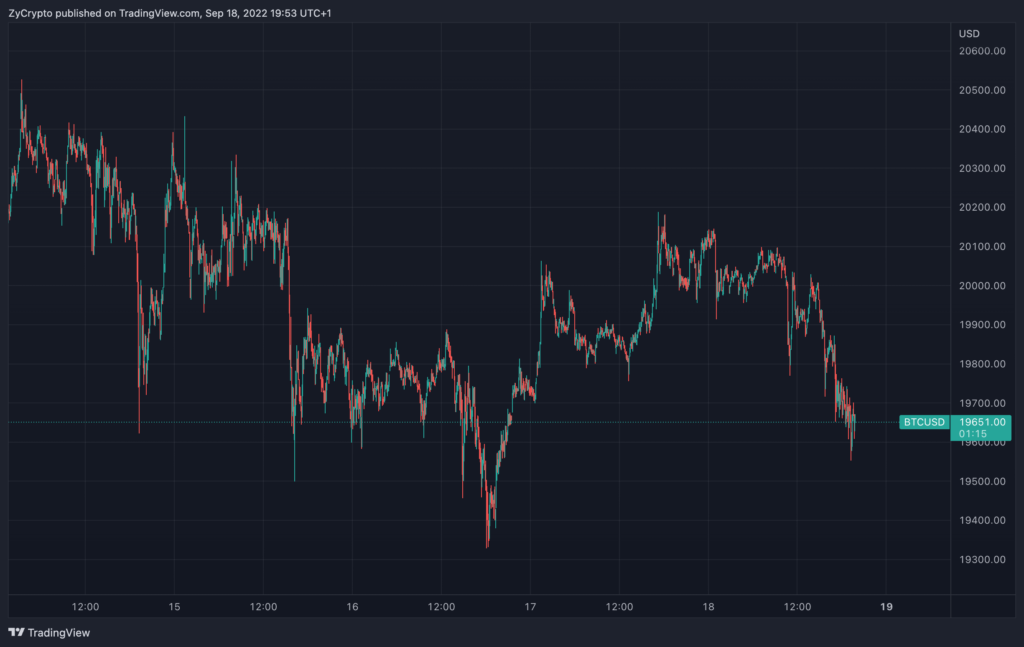As the bear market persists, Bitcoin (BTC) is currently down 70% from its all-time high, seen in November 2021. Amid these unfavourable conditions, BTC whales’ and miners’ distribution rates appear to have hit peak levels. This practice has a history of pumping in more sell pressure on investors in the market.
BTC whale movements at peak
According to an official CryptoQuant analysis of Bitcoin’s on-chain metrics, whale activity remains inauspicious at best. Per the analysis, BTC whale movements became more active before the break below the $20k support. The month of August witnessed some reawakening of dormant BTC coins. This trend spilt to September.
On August 11, CryptoQuant launched research on transactions involving 1k to 10k BTC, which had been dormant for over seven years. The research revealed that the assets could belong to early BTC adopters, or they may have been moved from the now defunct Cryptsy exchange before its hack.
Whichever the case was, the coins found their way to exchanges for possible selloffs. Some, however, were sent to unknown addresses, which could very well belong to mixers. This whale movement represented a fraction of the quantity of BTC reaching exchanges, as the BTC Exchange Reserve appears to have been seeing a spike.
Furthermore, on September 7, CryptoQuant noticed another batch of whale movements. Over 15k bitcoins were moved within ten days, with some getting sent to Kraken. These coins had been dormant for over eight years. Amidst the current bear market, these whale movements exerted more sell pressure and exacerbated the bearish atmosphere.
 
 
Miners are also in the habit of selloffs
Additionally, miners have also been involved in selloffs contributing to this pressure. The Beijing-based mining pool Poolin witnessed a massive withdrawal of over 5k BTC this week. Four days ago, Poolin had to pause withdrawals, citing “liquidity” concerns. According to the announcement, there had been a surge in withdrawal demands.
The recent selloffs among miners can be partly attributed to a low hash price. As BTC plummets to surprising lows, miners are seeing less income, and capitulation appears to be the attempt at hedging against further dips. Unfortunately, these selloffs create a ripple effect that increases sell pressure on more whales and miners.
Consequently, the BTC Exchange Reserve metric has seen a rapid surge since the end of August. Since hitting a 4-year low in June, the BTC reserves in exchanges have persistently increased, indicating an increase in selling pressure.

Despite these unfavourable metrics, BTC recently broke back above the $20k psychological support. The asset currently trades at $19,669 at the time of writing, down by 9% in the past week.


